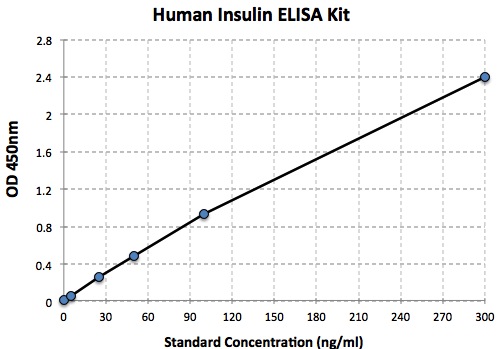Data sheet
| Assay Range | 0 - 300 μIU/ml |
More info
Insulin is a peptide hormone produced by beta cells in the pancreas. The human insulin protein is composed of 51 amino acids, and has a molecular weight of 5.8kDa. It is a dimer of an A-chain and a B-chain, which are linked together by disulfide bonds. Insulin decreases blood glucose concentration. It increases cell permeability to monosaccharides, amino acids and fatty acids. It accelerates glycolysis, the pentose phosphate cycle, and glycogen synthesis in liver. It regulates the metabolism of carbohydrates and fats by promoting the absorption of glucose from the blood to skeletal muscles and fat tissue and by causing fat to be stored rather than used for energy. Except in the presence of the metabolic disorder diabetes mellitus and metabolic syndrome, insulin is provided within the body in a constant proportion to remove excess glucose from the blood, which otherwise would be toxic.


